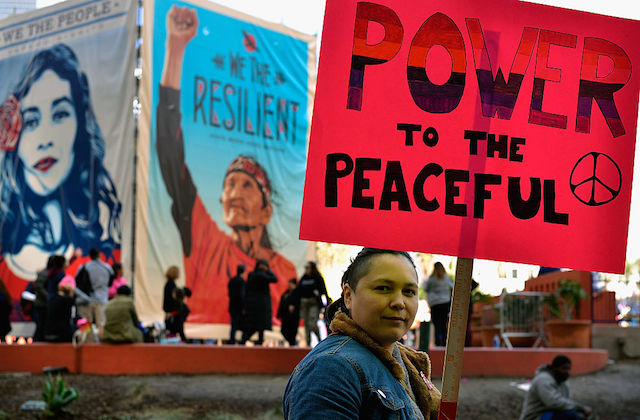As Native American women continue to be reported missing and murdered at alarmingly high rates, state and federal legislatures are taking steps to save them.
According to the Federal Bureau of Investigation (FBI), Native Americans disappear at twice the rate per capita of White Americans. The Guardian reports that Native women living on tribal lands are murdered at more than 10 times the national average rate.
While the issue is often framed as one that happens in rural communities and on reservations, a report from the Urban Indian Health Institute (UIHI) shows that this is not the case. It highlights that about three quarters of Native people live in urban areas in the United States. The researchers reported that 60 percent of police departments in the 71 cities they contacted could not provide data that showed they were accurately tracking disappearances of Native women. The report also identified Seattle as the U.S. city with the highest number of cases.
“Depending on who you are, you have a drastically different experience of the city,” said Annita Lucchesi, the executive director of Sovereign Bodies Institute who co-authored the report, told The Guardian. “So if you’re a Native woman you’re at risk for all this violence and probably have experienced some form of violence that the rest of the city is completely unaware of.”
Last week, Washington Governor Jay Inslee, who is also a 2020 presidential candidate, signed into law a bill that will strengthen communication between the state’s police agency, federal government offices and Native communities. “It also requires the state patrol to develop a protocol for law enforcement’s response to missing indigenous persons,” reports The Guardian.
The new law is in addition to one passed in April 2018 that requires state patrollers to work with tribes and their law enforcement to improve coordination and tracking efforts. It also mandated that a study be completed by June 2019 that accurately reports the number of missing Native women and provides policy recommendations on how to address the situation.
There have also been federal efforts to address the crisis. As Colorlines previously reported, North Dakota Senator Heidi Heitkamp (D-N.D.) introduced Savanna’s Act in 2018. It’s named for Savanna LaFontaine-Greywind, who was murdered in 2017 in Fargo, North Dakota, when she was 22 years old and eight months pregnant. The bill seeks to improve tribal access to federal crime information databases and it requires the United States Department of Justice to develop guidelines to respond to cases of missing and murdered Native Americans. According to The Guardian, the bill was reintroduced this year by a bipartisan team of senators.
“I wouldn’t say that we’re more vulnerable, I’d say that we’re targeted,” Lucchesi told The Guardian. “It’s not about us being vulnerable victims, it’s about the system being designed to target and marginalize our women.”
